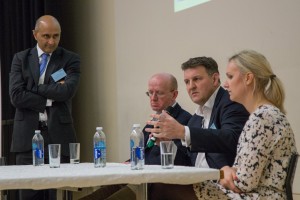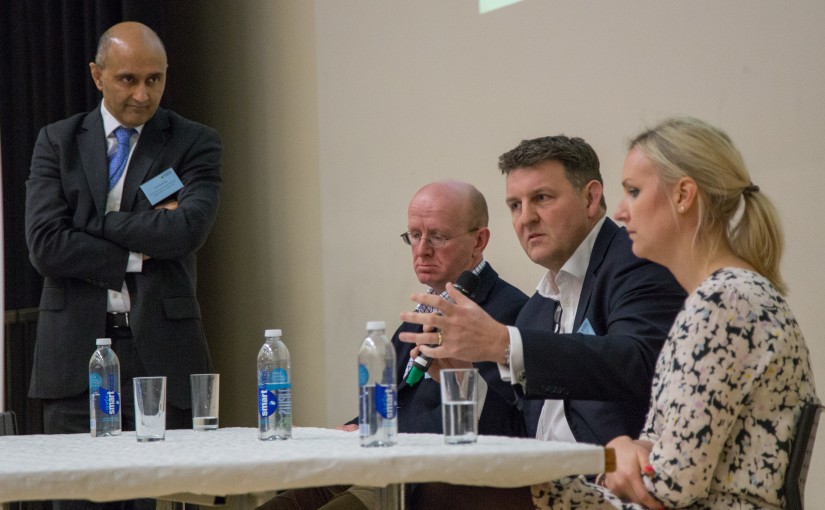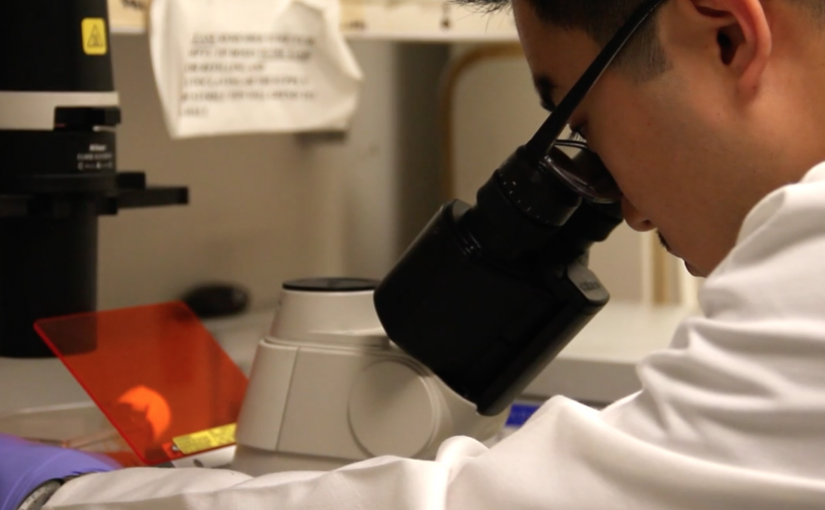On the evening of the 11th April, more than 300 researchers, entrepreneurs, investors and industry experts gathered for Innovation Forum Oxford’s Immunotherapy event at the John Radcliffe Hospital, Oxford. The event was timely given the emergence of immunotherapy as a major force in oncology treatment and was designed to unite the different sectors of academia, clinical medicine and industry to foster collaborations.
Vincenzo Cerundolo, Professor in Immunology at Oxford University and Consultant Physician, opened the meeting with an excellent overview of immunotherapy from its earliest origins to the field as it is now. Dr Robert Wilkinson, Director of Oncology Research at MedImmune Ltd, followed with a description of Medimmune’s work and some of the exciting molecules which have emerged from his group.
Following this, Paresh Vyas, Professor of Haematology at the University of Oxford described the development of a novel immunotherapy targeted against the CD47 antigen; this has had remarkable efficacy in pre-clinical models and is now in an early clinical trial in Oxford. The audience then heard more specifically about ImmTACs as an exciting targeted monoclonal cancer therapy from Dr Bent Jakobsen, CSO of Immunocore Ltd. Dr Martin Pule, a Consultant Haematologist, researcher at UCL and founder of Autolus Ltd, then described some of his work with chimeric antigen T cells targeting solid tumours, particularly a rare type of lymphoma called peripheral T cell lymphoma.
The event then moved on to hear about a new venture: Vaccitech. Professor Sarah Gilbert, one of the cofounders, described how this has arisen from research carried out in Oxford and will target prostate cancer via a new vaccine.
Finally there was a panel discussion chaired by Professor Vyas. Dr Lucinda Crabtree (Senior Investment Analyst, Woodford Investment Management LLP), Dr Eliot Forster (CEO, Immunocore Ltd) and Prof Mark Middleton (Lead Cancer Clinician at Oxford University Hospitals and Deputy Director of Cancer Research UK Oxford) made up the panel. Questions from the audience stimulated discussions around the future of innovation in immunotherapy, particularly focusing on the political and economic barriers faced and how these will be overcome.

The event concluded with drinks, snacks and a valuable opportunity to build links between industry, academia, clinicians and investors in order to foster productive translational collaborations.
For more information regarding Innovation in Immunotherapy, please contact [email protected]
Upcoming events:
The Oxford branch of the Innovation Forum will host an event on medical imaging in autumn. The WHAT IF accelerator will take place over summer and see local start-up ventures compete, under the guidance of mentors. The best will be put forward to contend in a global final for a sizeable investment prize. The annual Innovation Forum – Leaders Conference 2016 will take place in Cambridge on the 21st-22nd September.
For more information, please visit: www.inno-forum.org
Authors: Dr Andy King, Arron Thind, Mike Leeming. Credit for photo: Lars Hanssen

